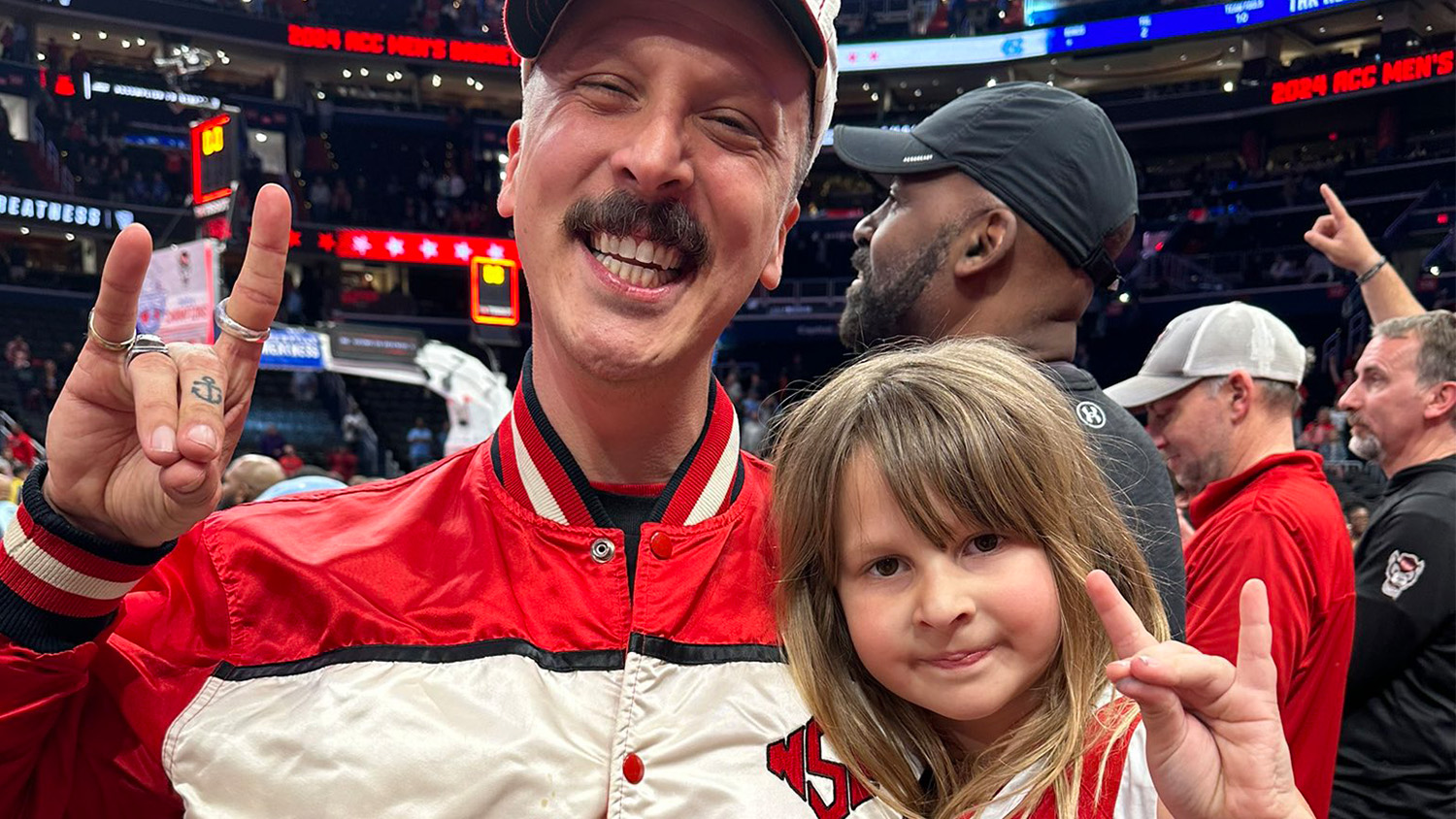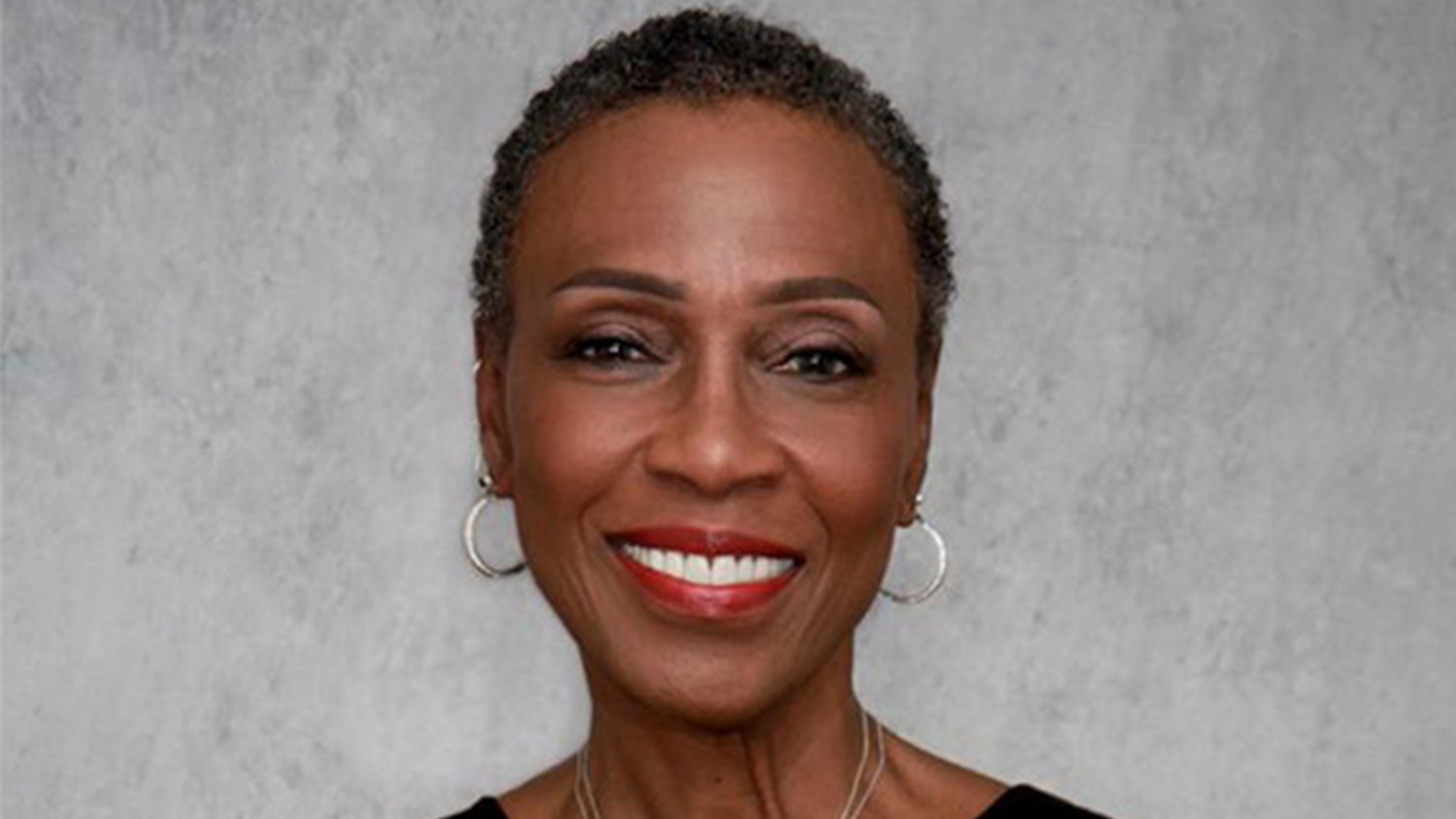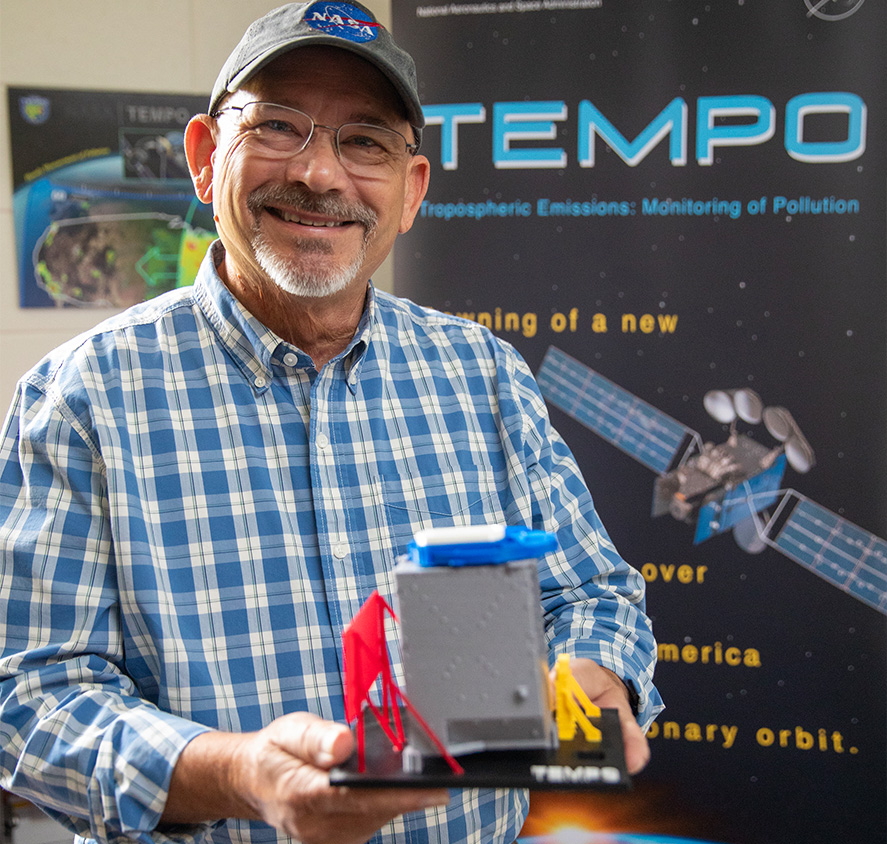Outside the Clinic
Counselors spread out across campus to get mental health care to students.

Luke Strawn ’17 MED had just heated up some leftovers for a late lunch at his desk. But the risotto would have to wait. It was walk-in hours, and a student from the College of Sciences wanted to talk.
“Their offices are right where the students are,” says Monica Osburn, director of the university’s Counseling Center. “Many students have never talked to a counselor. This makes it a little less scary. It’s on their own turf.”
Strawn’s job as an embedded counselor — he splits his time between two colleges — is a relatively new role at NC State. He’s one of 14 mental health clinicians who are embedded within colleges or programs. Those positions began years ago with counselors assigned to the College of Veterinary Medicine and Athletics, and the program expanded last fall.
“Their offices are right where the students are. Many students have never talked to a counselor. This makes it a little less scary. It’s on their own turf.”
– Monica Osburn, director of the university’s Counseling Center
A new report from the Student Mental Health Task Force, established by Vice Chancellor and Dean Doneka Scott last fall, recommended adding embedded counselors to residence halls. It comes as NC State is working to make sure student mental health is a priority, as a number of student deaths, including some by suicide, have impacted campus.
Osburn says the pandemic was particularly hard on today’s college-age adults. “They were isolated well over a year,” she says. “They missed significant developmental interactions and milestones that students often have — that first breakup, that first conflict with a friend — when they learn to navigate all that and gain skills to cope.”
The embedded counselors are among the 47 clinical positions that Osburn oversees. A nationwide shortage of counselors has made it difficult to fill the positions. Five years ago, she’d get 100 applications, and now the hiring pool may be only 10–20 applicants. “We serve all students that come in,” she says. “Someone in private practice can just take the clients they want to take and make more money in three days than our staff can make in a week.”
Where the embedded counselors are:
• CALS / Sciences (shared position)
• Design
• Engineering
• Humanities and Social Sciences
• Natural Resources / Education (shared position)
• Poole College of Management
• Textiles / Graduate School (shared position)
• Veterinary Medicine
• Athletics
• Campus Health
• Institute of Data Analytics
Strawn, who has offices in Patterson Hall and the Bureau of Mines building, says he loves the “on-your-feet” day-to-day rhythm of the job. “The 18 -to-24 year olds, there’s so much going on,” he says. “They are finding out who they are as people.” The work is difficult, he says, but also rewarding. Like the times a student realizes that it’s OK to ask for help, or succeeds at a task they thought insurmountable. “There’s the LGBT student who feels he cannot come out to his family, but is now finding ways that he can express that independence,” he says. “When you get a win, it’s so good.”


